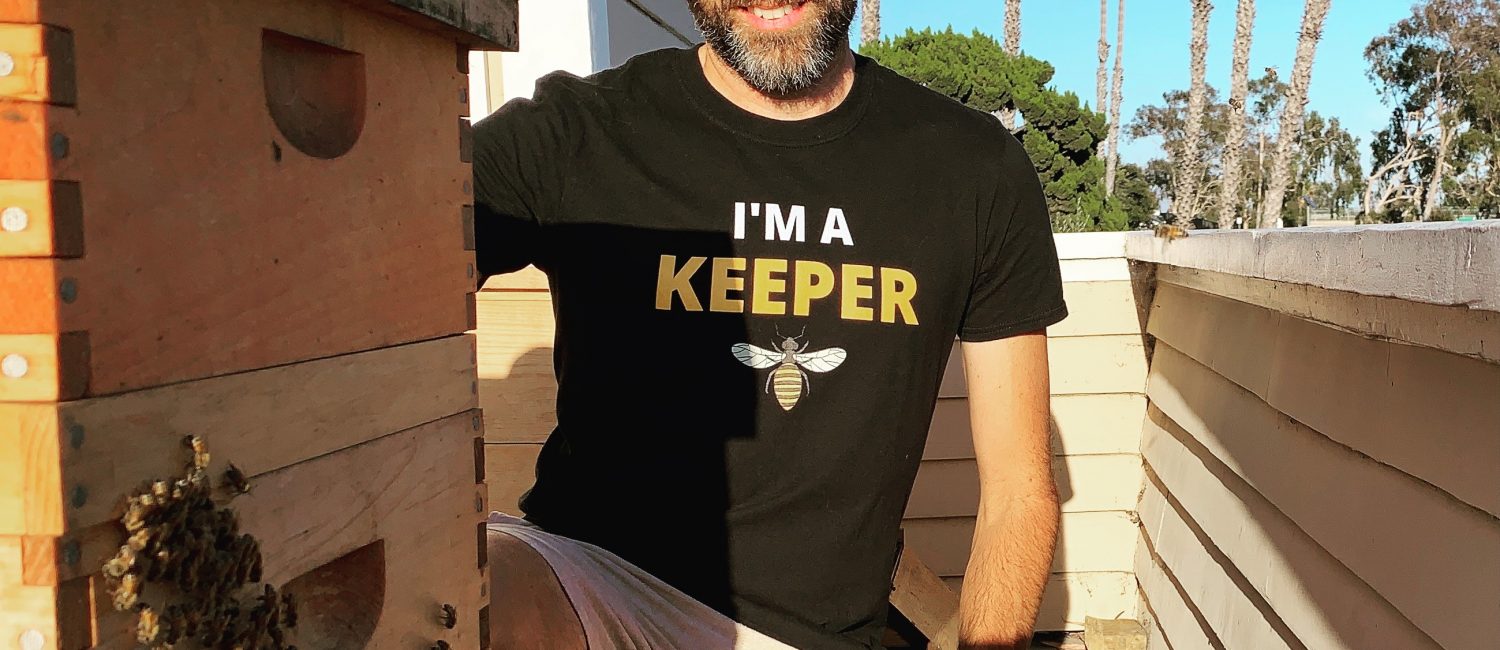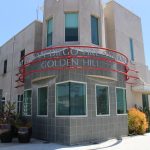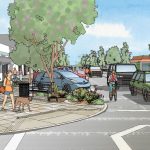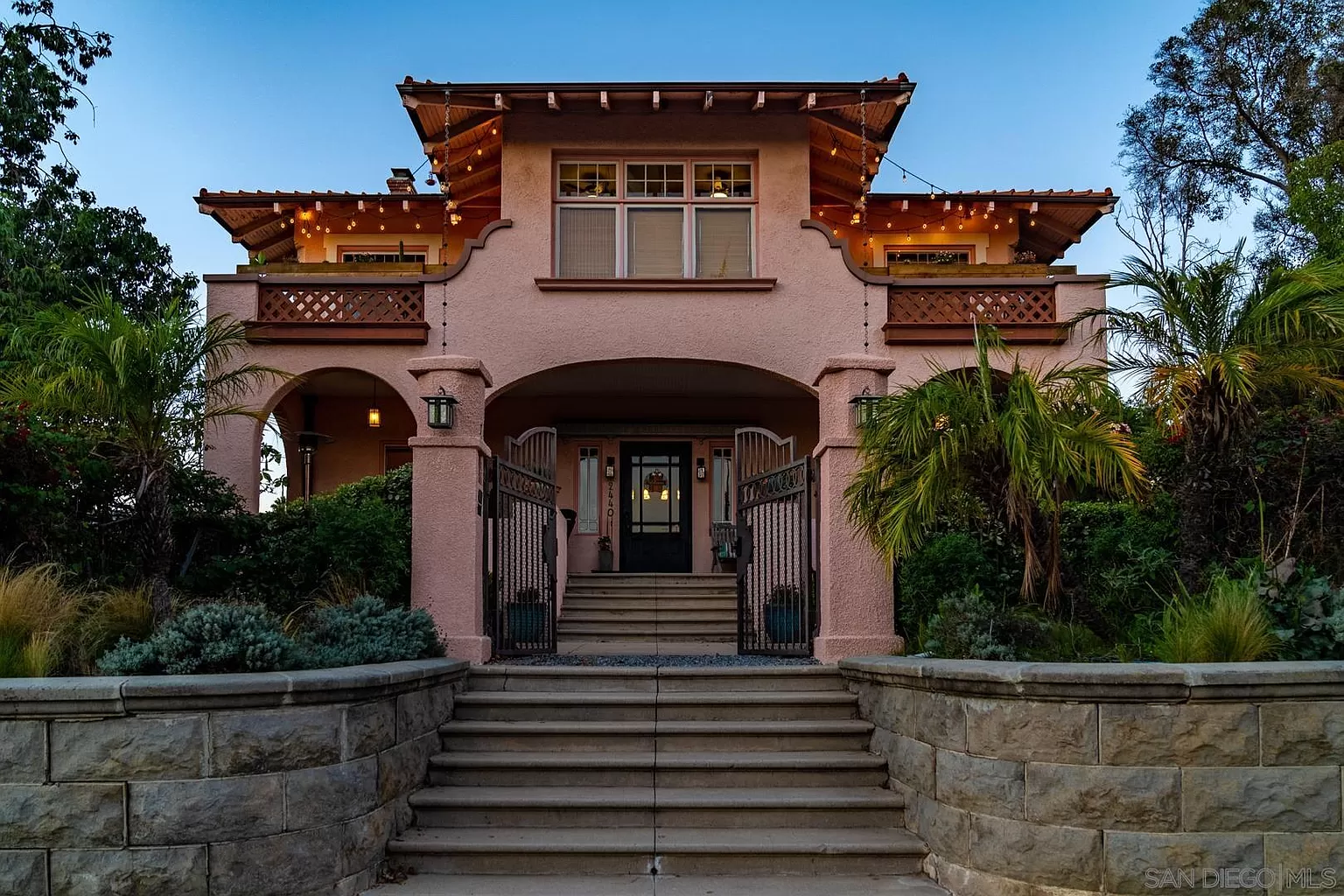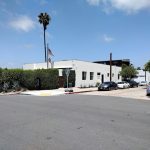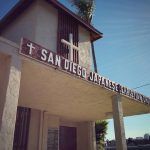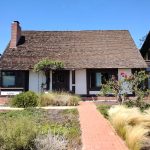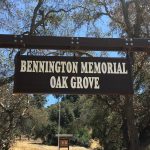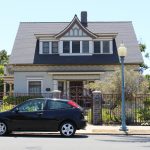Our spotlight shines this week on Judd Curran, owner of Happy Bee. Curran and his “bee-team” produce artisan micro-batch raw honey from bees foraging the flowers and tree blossoms of Golden Hill, Sherman Heights, East Village, and Balboa Park. Just in time for National Pollinator Week, we sat down with Curran to learn how what started as a small project to support local pollinator populations became a successful small business.
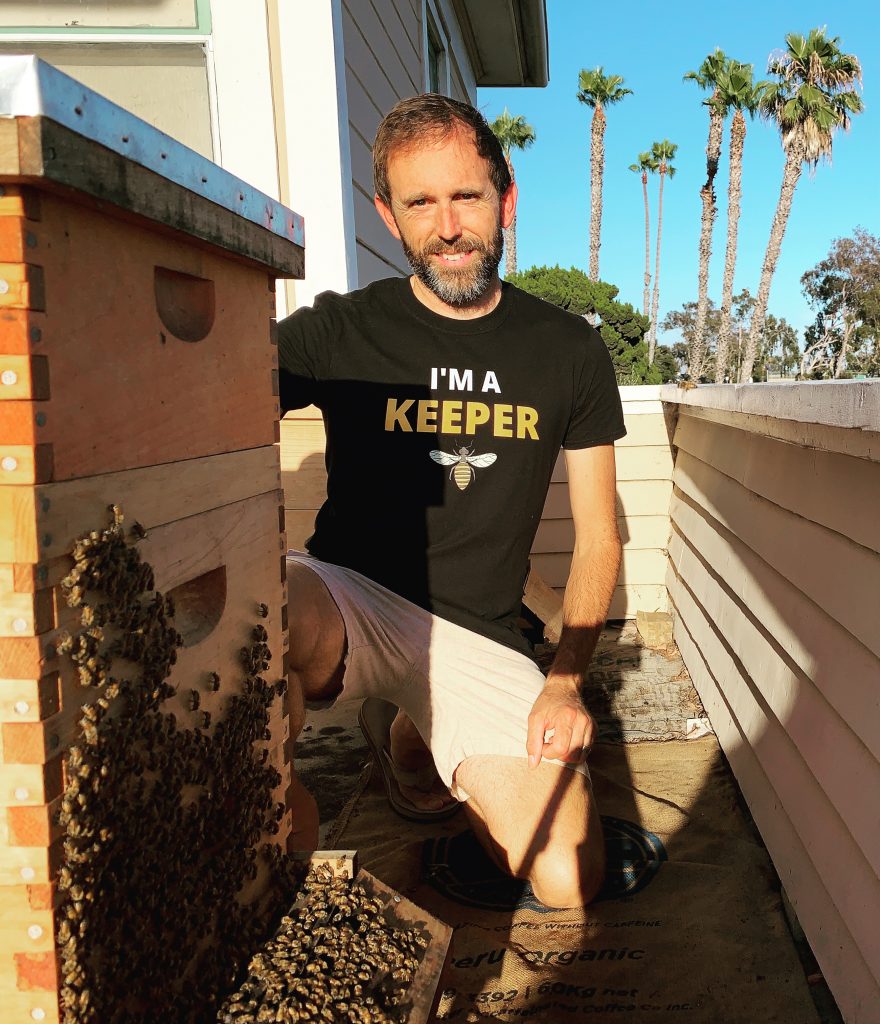
“We are in the ‘business’ of strengthening our community and nurturing connections and positive social interactions amongst our neighbors by bringing people together on a common thread—reversing the trend of declining abundance of pollinators in San Diego.”
Judd Curran
Roughly 75% of all flowering plant species need animal pollinators to reproduce, and alarming reports about the health of pollinator communities sparked a change in Judd and Victoria Curran, owners of Happy Bee. Their concern for pollinators started to come into focus after reading a startling article in the New York Times Magazine titled, “The Insect Apocalypse” in November 2018, followed by more dire news about the Western Monarch Butterfly and bumblebees in crisis thereafter.
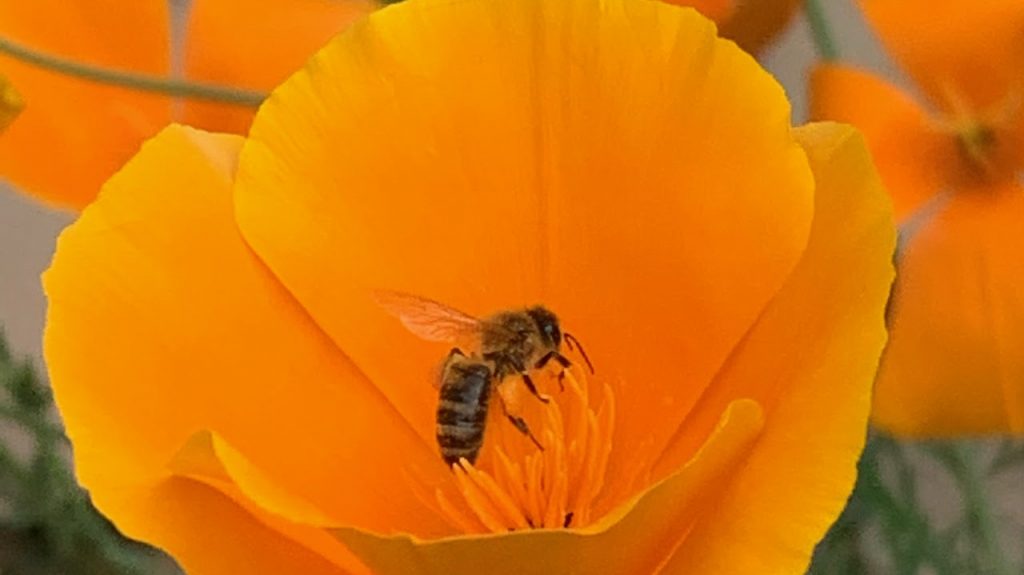
“Our intent was, and still is, to help honeybees and other pollinators in a time of major decline,” says Curran. His first step was to transform the lawn of his Golden Hill home into something of a paradise for pollinators with drought-tolerant, California native plants. Beyond the obvious visual transformation that took place with these changes, what Curran didn’t realize was how important the flowering plants he introduced would be to the native pollinators in our region, and how they would descend into his yard in great numbers and with regularity.
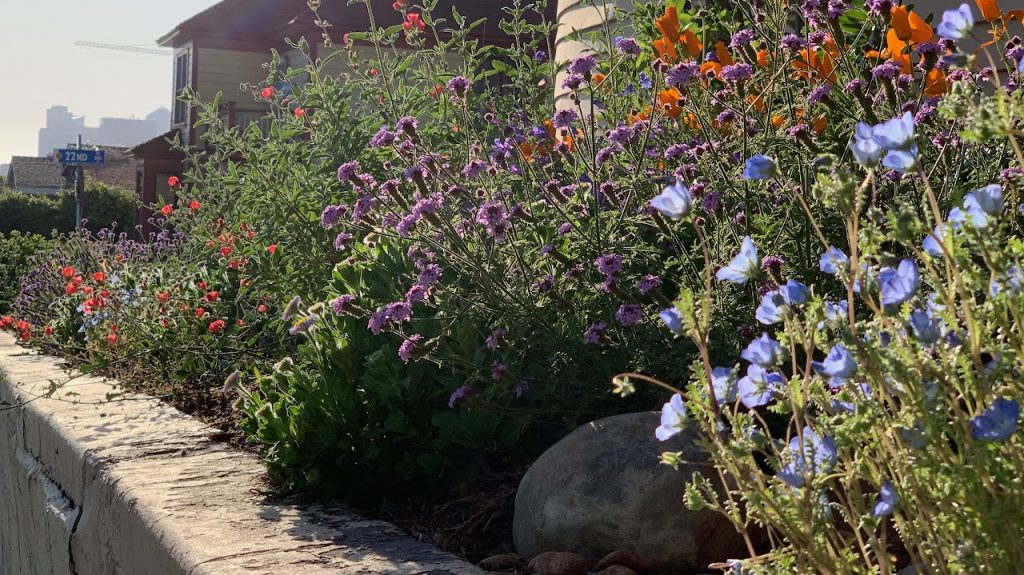
With his new garden abuzz with excitement, Curran decided to dive into the world of beekeeping and provide a safe haven for all of his new pollinators. They knew that it wouldn’t be easy, and that they would likely face difficult challenges. But their commitment to intensive regular observations and an integrated management approach have paid off. “We have not lost a colony yet, despite major challenges,” says Curran. “We owe a great deal of our success to the knowledge and guidance we have received from the San Diego Beekeeping Society and County of San Diego Apiary Program.”
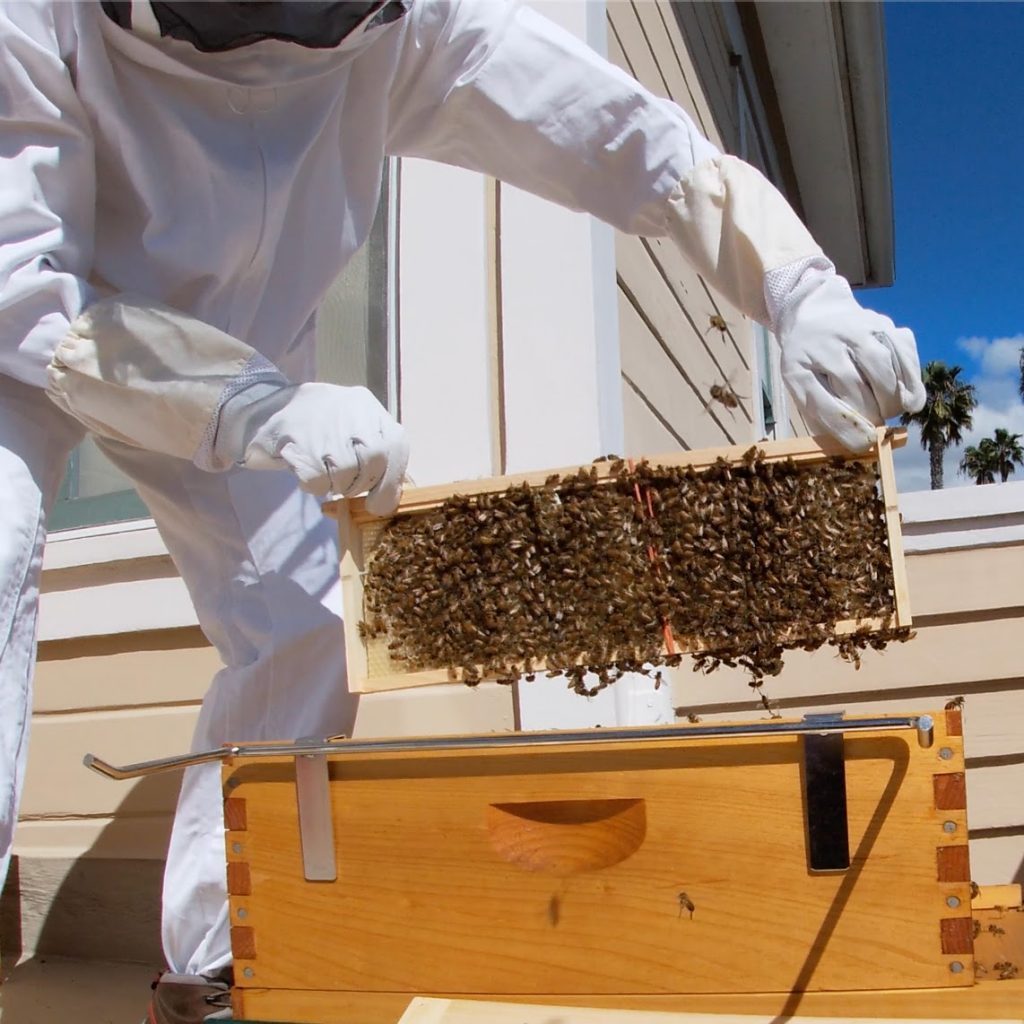
Almost immediately, the bees at Happy Bee started producing lots of honey. Curran notes the incredibly diverse year-round foraging options in San Diego’s ideal marine-influenced coastal environment with both native local flora and mature trees within an irrigated urban landscape. He suspects the combination of all of these factors resulted in extraordinarily productive foraging with outstanding honey quality.
But what to do with all of this honey?
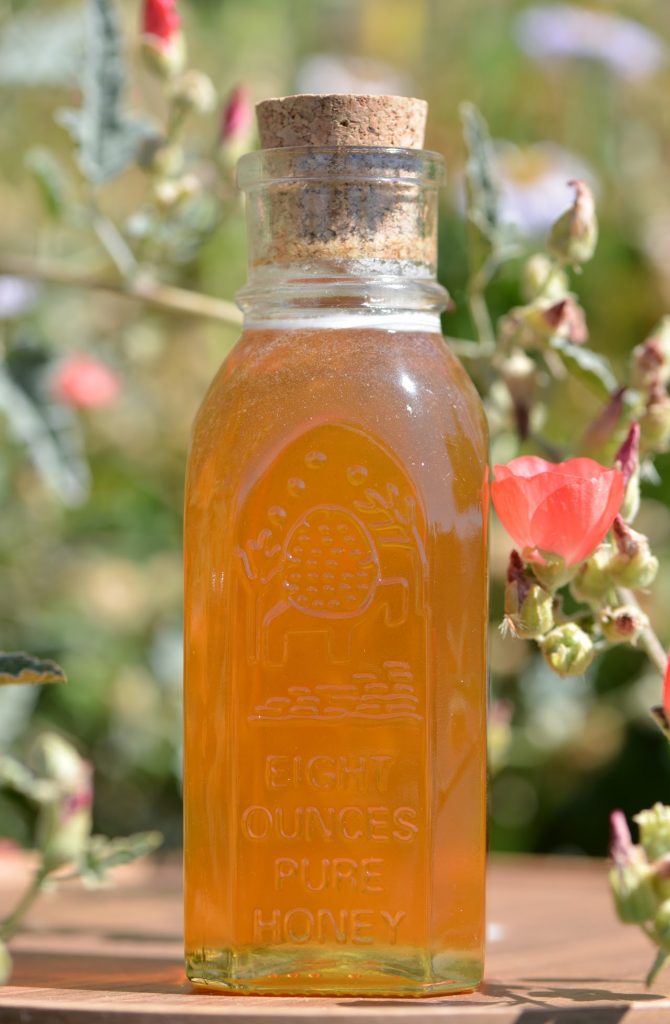
“It was too good not to share,” says Curran. Most important to Happy Bee is the value of reciprocity. “We love that it is hyper-local. We love that the more our community works on developing and nurturing their gardens, the more our Happy Bees give back to the community by way of honey.”
In 2021, Curran officially launched Happy Bee as a home kitchen business licensed by the County of San Diego. The designation allows Curran to harvest, bottle, and sell his honey from his home. Since then, Happy Bee has produced four large batches of honey. Each batch has sold quickly with the latest selling out in under 48 hours.
Although Happy Bee has been tremendously successful in terms of its production and sales, success in Curran’s view comes from designing a business, activity, or venture founded on the values of compassion, cooperation, and solidarity. Curran says they are in the “business” of strengthening our community and nurturing connections and positive social interactions amongst our neighbors by bringing people together on a common thread—reversing the trend of declining abundance of pollinators in San Diego.
“It’s an issue that affects us all,” says Curran. “We rely heavily on pollinators for food production, both in our local gardens as well as in our industrial-scale food production systems. But, it is also an issue that can be addressed at the individual-level by the decisions we make in our community with the potential for a big positive impact, all while bringing us together. And together we can make a significant difference. When we do, our metric of success as a Golden Hill business is ‘off the charts’.”
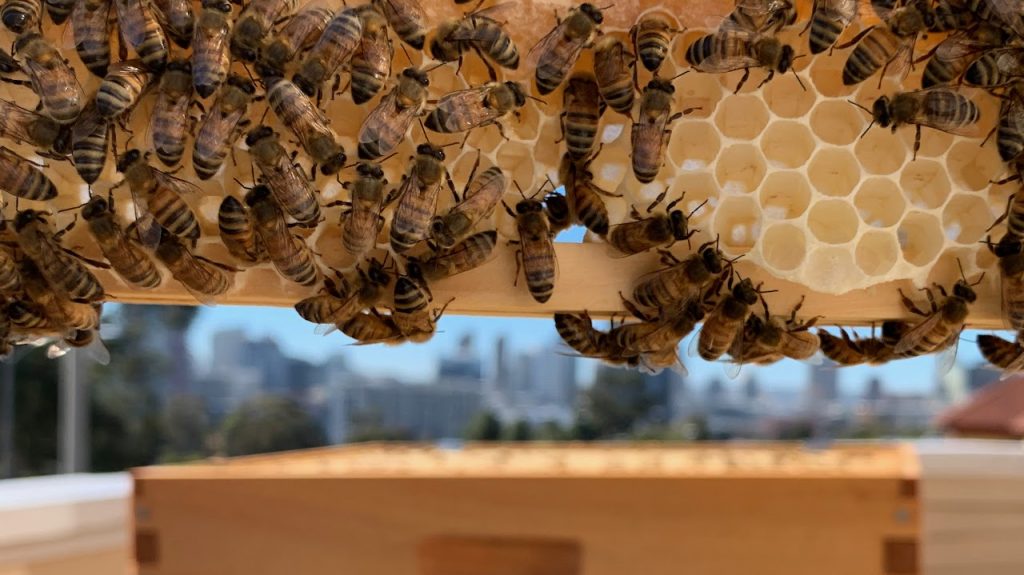
National Pollinator Week is held every year the world over to support pollinator health. The U.S. Senate’s unanimous approval and designation of a week in June as National Pollinator Week was a needed step to addressing the issue of declining pollinator populations. The week gives scientists and the public a special week to celebrate pollinators and spread the word about what we all can do to protect them.
You can help pollinators by sharing Pollinator Week on your social media, building native bee houses, planting pollinator habitat in your yard and many other ways. For more information about how you can help, please visit pollinator.org, HappyBeeSD.com, or call the County of San Diego Bee Hotline at 1-800-200-BEES (2337).
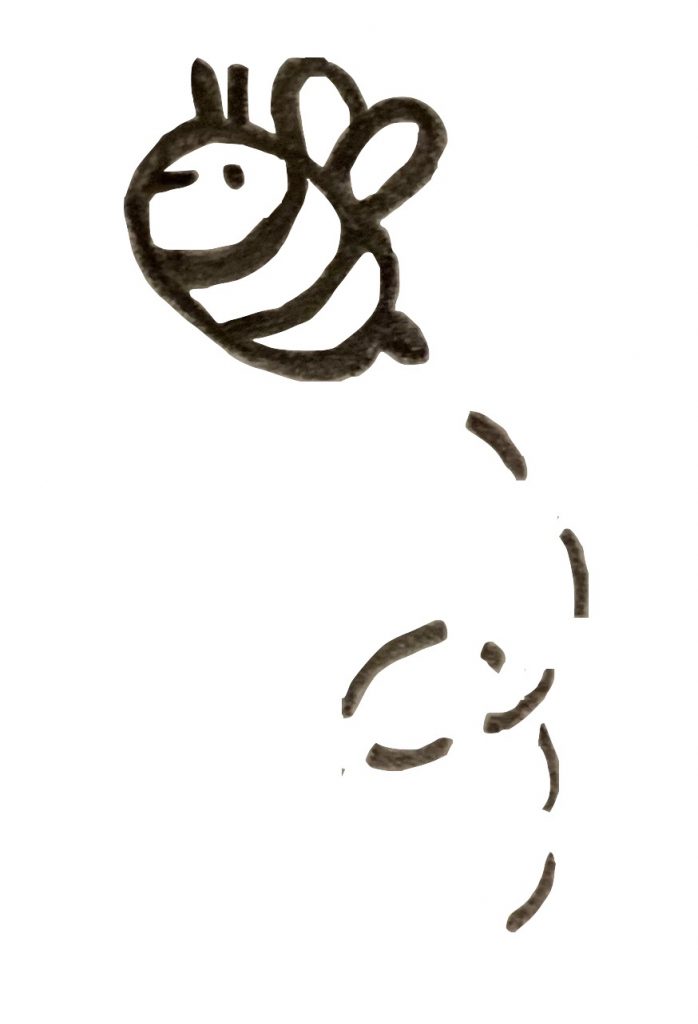
Happy Bee is located at the corner of 22nd and E Streets. They can be reached at HappyBeeSD@gmail.com, online at HappyBeeSD.com, on Instagram @happybeesandiego. Be sure to sign up for their newsletter to get information about pollinators in our area and any upcoming sales.
